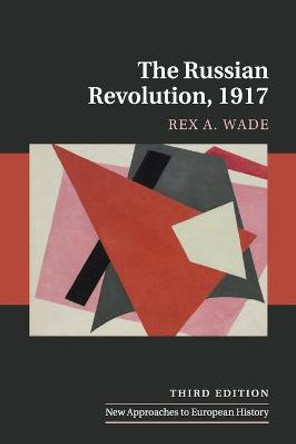Asked shortly after the revolution about how she viewed the new government, Tatiana Varsher replied, "With the wide-open eyes of a historian." Her countrywoman, Zinaida Zhemchuzhnaia, expressed a similar need to take note: "I want to write about the way those events were perceived and reflected in the humble and distant corner of Russia that was the Cossack town of Korenovskaia." What these women witnessed and experienced, and what they were moved to describe, is part of the extraordinary portrait of life in revolutionary Russia presented in this book. A collection of life stories of Russian women in the first half of the twentieth century, In the Shadow of Revolution brings together the testimony of Soviet citizens and emigres, intellectuals of aristocratic birth and Soviet milkmaids, housewives and engineers, Bolshevik activists and dedicated opponents of the Soviet regime. In literary memoirs, oral interviews, personal dossiers, public speeches, and letters to the editor, these women document their diverse experience of the upheavals that reshaped Russia in the first half of this century. As is characteristic of twentieth-century Russian women's autobiographies, these life stories take their structure not so much from private events like childbirth or marriage as from great public events. Accordingly the collection is structured around the events these women see as touchstones: the Revolution of 1917 and the Civil War of 1918-20; the switch to the New Economic Policy in the 1920s and collectivization; and the Stalinist society of the 1930s, including the Great Terror. Edited by two preeminent historians of Russia and the Soviet Union, the volume includes introductions that investigate the social historical context of these women's lives as well as the structure of their autobiographical narratives.
A pleasure to read and hugely absorbing. The variations in the memoirs, the clear evidence that many were written under extremely circumscribed conditions, gives one of the best introductions possible to Soviet history. Hearing the voices of individuals writing in different eras gives the reader a sense not only of the experiences women lived through (many of them terribly tragic) but also of the language they used and the terms in which they thought about their own life experiences. -- Elizabeth A. Wood, MITAbout the AuthorSheila Fitzpatrick is the Bernadotte E. Schmitt Distinguished Service Professor in History at the University of Chicago and coeditor of The Journal of Modern History. She is the author of, most recently,
Everyday Stalinism: Ordinary Life in Extraordinary Times: Soviet Russia in the 1930s and
Accusatory Practices: Denunciation in Modern European History, 1789-1989.
Yuri Slezkine is Professor of History at the University of California, Berkeley. He is the coeditor of
Between Heaven and Hell: The Myth of Siberia in Russian Culture and the author of
Arctic Mirrors: Russia and the Small Peoples of the North.
Reviews"Give[s] depth and human dimension to a place and period too often shrouded in polemics and ideology."--Publishers Weekly "Each autobiography here transforms the story of a private life into the story of the country and the times."--Kirkus Reviews
Book InformationISBN 9780691019499
Author Sheila FitzpatrickFormat Paperback
Page Count 456
Imprint Princeton University PressPublisher Princeton University Press
Weight(grams) 624g





